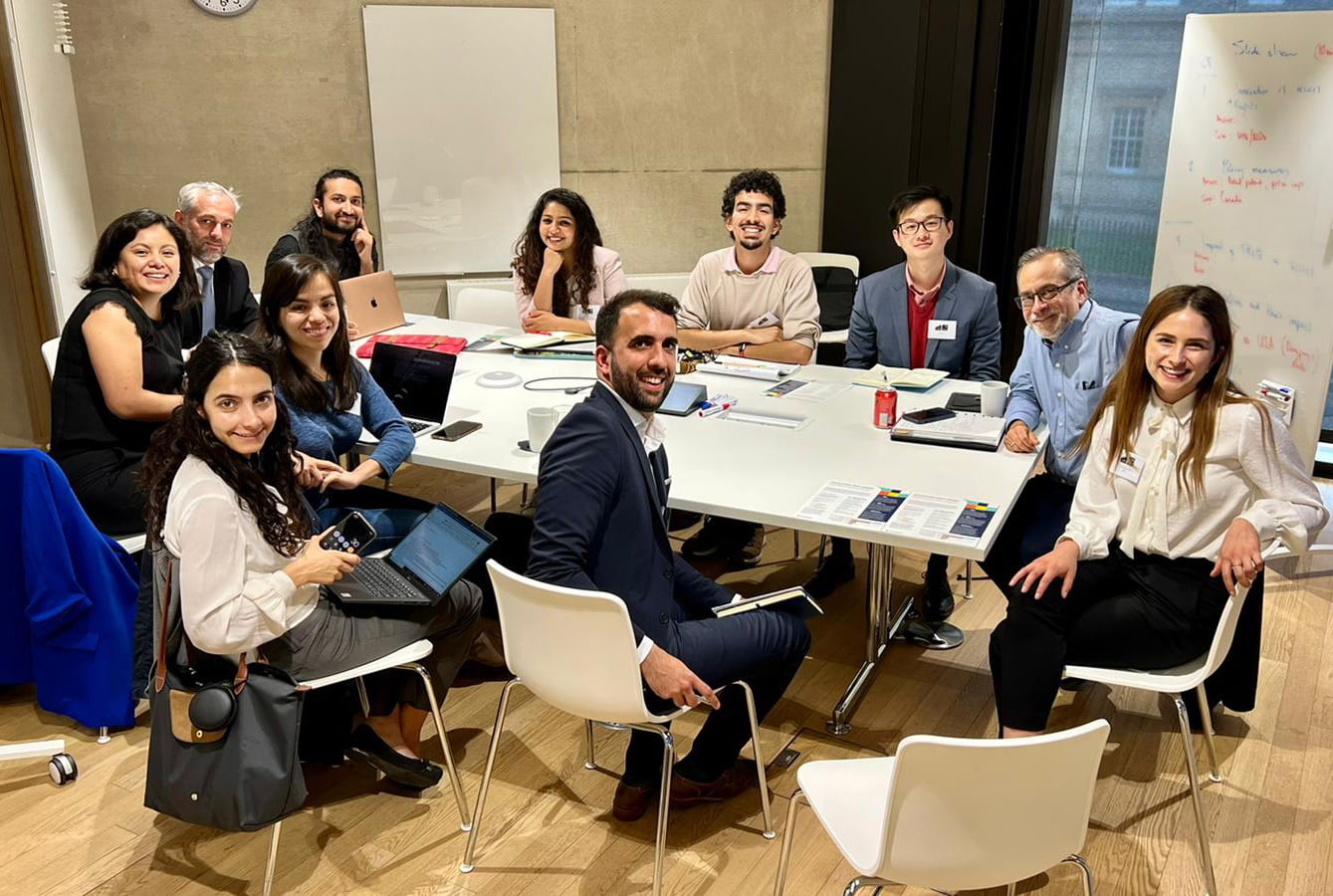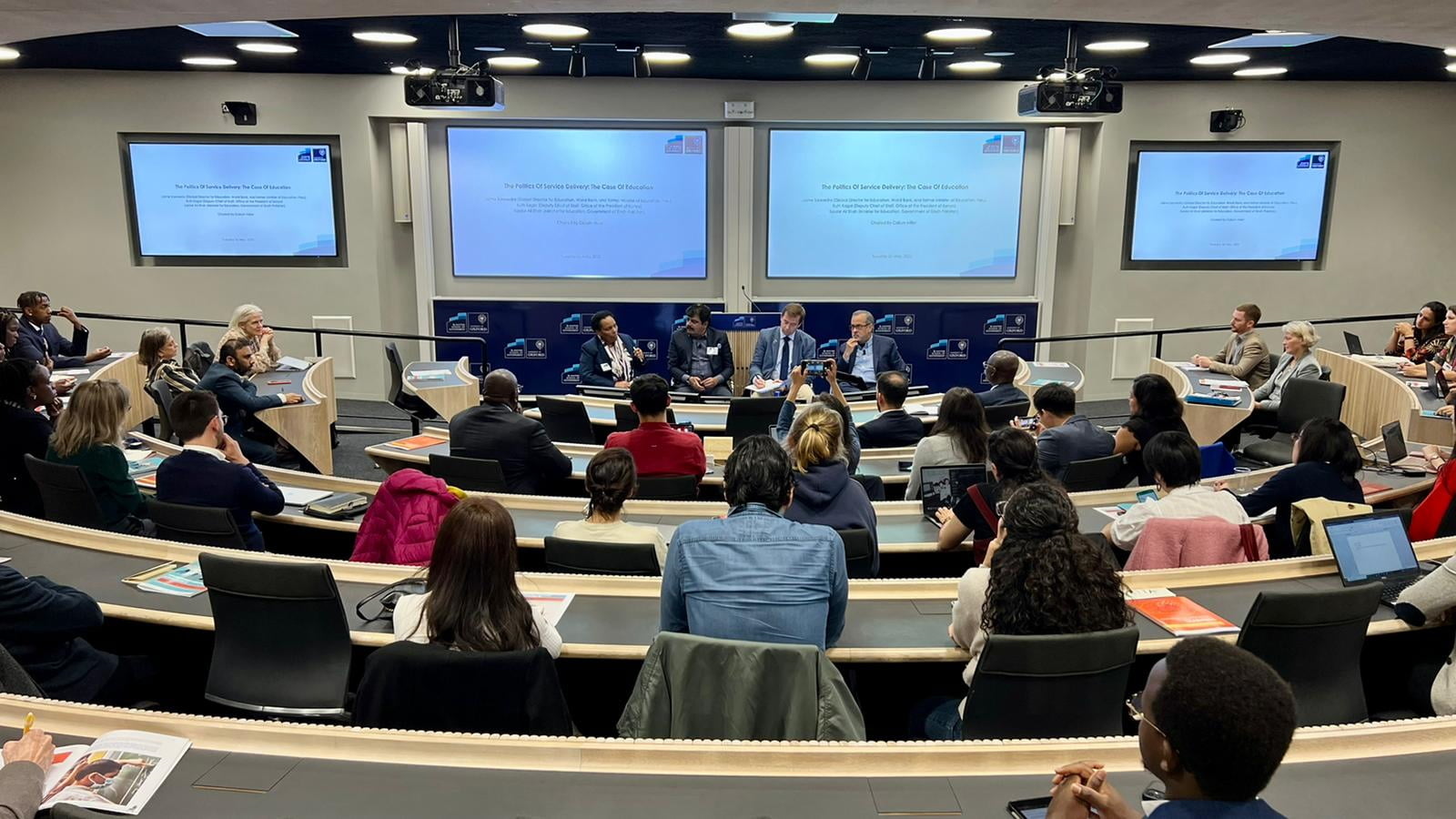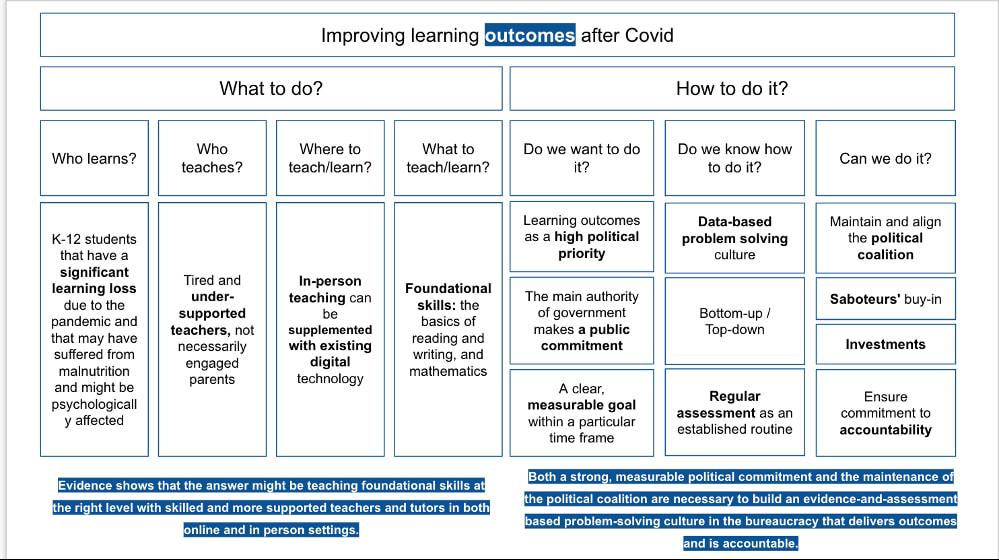The politics of service delivery and education – learnings from a student-led event
MPP students share the key learnings from the event focused on education outcomes they organised earlier in the year.

It is said that in the long run, all the problems are problems of education. While policymakers, politicians and society, in general, may disagree with such a broad statement, there is consensus that education is one of the most important policy areas and public services.
That is why some of us MPP students created the Education Future Leaders group, trying to better understand how to tackle the challenge of providing high-quality education to the 2.2 billion children in the world. Within that context, this May, the Education Future Leaders led an event titled “The Politics of Service Delivery: the Case of Education” to address the question of how to achieve educational reform.
Debates on education often centre around what works to increase learning, but even when the focus is agreed upon, governments face challenges in implementing bold reforms. Lack of political incentives, vested interests and weak public sector management all contribute to the challenge. Our event brought together leaders in the field of education to discuss the politics of service delivery, drawing on strategies from governments across the world.
As well as side sessions with the RISE and DeliverEd research teams and student led-sessions, the event included a discussion on the politics of educational reform led by the Blavatnik School’s Calum Miller and including panellist such as Jaime Saavedra (Global Director for Education at the World Bank and Peru’s former Minister of Education), Ruth Kagia (Deputy Chief of Staff at the Office of the President of Kenya) and Sardar Ali Shah (Minister for Education, Culture, Tourism, Antiquities and Archives in the Government of Sindh, Pakistan).
The panel discussion drew on the latest Global Education Evidence Advisory Panel Report (2022) on 'Prioritizing Learning During COVID-19' to discuss the political challenges of implementing evidence-based policies and delivering elements such as teaching at the right level and adjusting teaching instruction. Teaching at the right level refers to adjusting teaching standards to suit the learner's educational performance level and adjusting to learning loss which are cost-effective approaches to improve learning.

Key learnings from the event
- Raise the salience of education to get political interest from a silent crisis to a noisy, urgent one. Governments and organisations need to engage civil society to advocate and demand a higher quality of education. Political pressure is essential to improve quality education and to bring about change. Civil society has an important role to play in advocating for educational reform.
- Governments need to make decisions based on the evidence available, which is abundant as compared to the past. We can no longer say we do not know what drives children’s learning. Taking the evidence into consideration, investments in education need to be cost-effective and focus on improving learning outcomes.
- Political commitment to getting reform started. The highest political authority should make explicit commitments to achieve education outcomes and move away from a focus on inputs. Instead of celebrating opening new schools, ministers and presidents should aim to celebrate that more children excel in the expected learning objectives.
- Management to get reform done. Education systems are usually one of the largest organisations in a country. Bold reform is only possible with high-quality managerial practices.
A framework to visually summarise the key learnings of the event
Cesar Sanchez Casares, an MPP student, drafted a brief visual framework to better synthesise how to approach educational reforms that aim to improve learning outcomes. The first step is to understand what to do. Therefore, a clear diagnostic of the situation is necessary. It should consider the four main aspects of any learning process: who learns, who teaches, what is being taught and learned, and where the learning experience occurs. The situation depends on each country's system, but there is an alarming learning crisis with a very high percentage of children who are unable to read a simple text by the age of ten. The answer to the “what to do” question is to focus on teaching foundational skills at the right level for the child, with more supported teachers and tutors in both in-person and online settings.
That sounds great, but how to do it? To answer this question we need to ask the following questions: Do we want to do it? Do we know how to? Can we do it? What we have learnt from the event discussions is that a strong, measurable political commitment and the maintenance of the political coalition are necessary. Political commitment is required to build an evidence- and assessment-based problem-solving culture that delivers outcomes and is accountable to civil society.

We, the Education Future Leaders, are inspired to take the learnings from this event forward to our home contexts and into our education-focused policy projects in the future.


